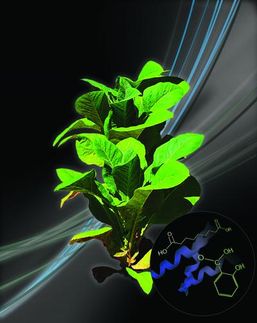A Change for the better: Scientists develop a new method for improving the functional characteristics of enzymes
Advertisement
An international team of scientists from the Czech Republic, Germany and Japan have developed a new method for improving the properties of enzymes. The method has potential for wide application in the chemical, medicinal and food industries. The research has been published in Nature Chemical biology (Martina Pavlova Martin Klvana, Zbynek Prokop, Radka Chaloupkova, Pavel Banas, Michal Otyepka, Rebecca C Wade, Masataka Tsuda, Yuji Nagata & Jiri Damborsky Redesigning dehalogenase access tunnels as a strategy for degrading an anthropogenic substrate: Nature chemical biology 2009;5(10):727-33).
The modified enzymes can be used, for example, for disposal of highly harmful chemical substances which enter into the environment as a result of human activity and can have a very negative influence on human and animal health. Nature cannot degrade many of these chemicals but, in this work, the scientists have developed an approach that can be applied to remove them efficiently from the environment. The principle of the discovery is based on genetic manipulation of the enzyme which is starting and accelerating the chemical reaction. „Now we can use genetic modifications for changing the properties of the enzymes so they can faster and more easily dispose of harmful substances in the environment,” says Jiri Damborsky, leader of the Protein Engineering Group at the Institute of Experimental Biology, Faculty of Science, Masaryk University.
Up to now, the scientists had focused during the modification of an enzyme’s properties on the site in its structure where the chemical reaction happens, the active site. The new method is based on the modification of so-called access tunnels that connect the active site with the surface of the enzyme. “Specialized computational techniques guided the experimental work to engineer these tunnels to alter their accessibility to the degraded substances,” notes Rebecca Wade, leader of the Molecular and Cellular Modeling Group at EML Research in Heidelberg.
The scientists applied the approach by modifying an enzyme to degrade the highly toxic substance, trichloropropane (TCP). This colourless liquid is a secondary product of chemical production. It can reside in the soil and groundwater for over 100 years, can contaminate drinking water and is a carcinogen. Using the new approach, the protein engineers developed a modified enzyme capable of degrading this substance 32 times faster than the original enzyme.
But the method has much wider scope for application than just in the fight against harmful substances and in environmental protection. The targeted modification of the tunnels in enzymes can be utilized in different application areas, including biomedicine, and the chemical and food industries.






















































